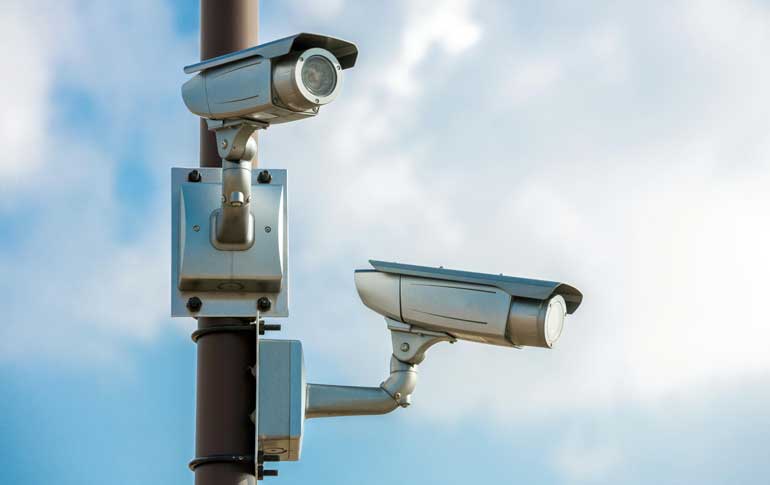In the realm of surveillance technology, IP cameras have emerged as a revolutionary solution, redefining the way we monitor and secure our environments. These advanced devices have transcended traditional analog systems, offering enhanced functionality, flexibility, and scalability. In this article, we will explore the evolution, advantages, and future prospects of IP cameras.
Contact us 202-810-7755 today to learn more about IP Camera. Please contact us to setup IP Camera for your business or if you have any questions or concerns.
DC Metro IT Help
The Evolution of IP Cameras:
IP cameras, also known as network cameras, have evolved significantly since their inception. In the past, closed-circuit television (CCTV) systems relied on analog cameras that transmitted signals through coaxial cables to dedicated monitors or recording devices. However, with the advent of digital technology, IP cameras emerged as a more versatile and efficient alternative.
IP cameras convert video and audio signals into digital data, which can be transmitted and accessed over local area networks (LANs), wide area networks (WANs), or the internet. These cameras leverage the power of the Internet Protocol (IP) to provide remote viewing, storage, and management capabilities.
Advantages of IP Cameras:
- High-Quality Video: IP cameras capture high-resolution video, offering superior image quality compared to analog cameras. They often support high-definition (HD) and even ultra-high-definition (UHD) resolutions, allowing for detailed monitoring and identification.
- Remote Accessibility: One of the most significant advantages of IP cameras is their ability to be accessed remotely. Users can view live feeds or recorded footage from anywhere with an internet connection, using smartphones, tablets, or computers. This feature proves invaluable for business owners, homeowners, and security personnel who need real-time surveillance access.
- Scalability and Flexibility: IP camera systems can easily adapt to changing requirements. Additional cameras can be integrated into the existing network without the need for extensive rewiring. This scalability allows users to expand their surveillance coverage as needed. Furthermore, IP cameras support various functionalities, such as motion detection, audio recording, and advanced analytics, enhancing their versatility.
- Intelligent Analytics: Many IP cameras come equipped with intelligent analytics capabilities. These features include facial recognition, object detection, license plate recognition, and people counting. Such analytics enable proactive monitoring, automatic alerts, and data-driven decision-making, making IP cameras an indispensable tool for security professionals.
- Cost Efficiency: While the initial investment in IP camera systems may be higher compared to analog alternatives, they offer long-term cost savings. IP cameras utilize existing network infrastructure, eliminating the need for extensive cabling. Additionally, centralized management and storage reduce maintenance costs and provide efficient data retrieval.
Contact us 202-810-7755 today to learn more about IP Camera. Please contact us to setup IP Camera for your business or if you have any questions or concerns.
DC Metro IT Help
Future Prospects:
The future of IP cameras looks promising as technological advancements continue to shape the surveillance landscape. Here are some key developments to anticipate:
- Artificial Intelligence (AI) Integration: AI-powered IP cameras will further enhance security by enabling real-time threat detection, behavior analysis, and anomaly detection. These intelligent systems will reduce false alarms, improve response times, and enable predictive security measures.
- Enhanced Connectivity: As the Internet of Things (IoT) expands, IP cameras will become more interconnected with other devices and systems. Integration with smart home automation, access control systems, and cloud-based platforms will create a comprehensive ecosystem that ensures seamless security and convenience.
- Edge Computing: IP cameras with edge computing capabilities process and analyze data locally, reducing reliance on external servers and minimizing latency. This technology enables faster response times, improved privacy, and greater efficiency in bandwidth utilization.
- Cyber security Measures: With the increasing connectivity of IP cameras, cybersecurity will become paramount. Manufacturers will prioritize robust encryption, authentication protocols, and regular firmware updates to protect against unauthorized access and data breaches.
IP cameras have revolutionized the surveillance industry, offering superior image quality, remote accessibility, scalability, and



Leave a Reply